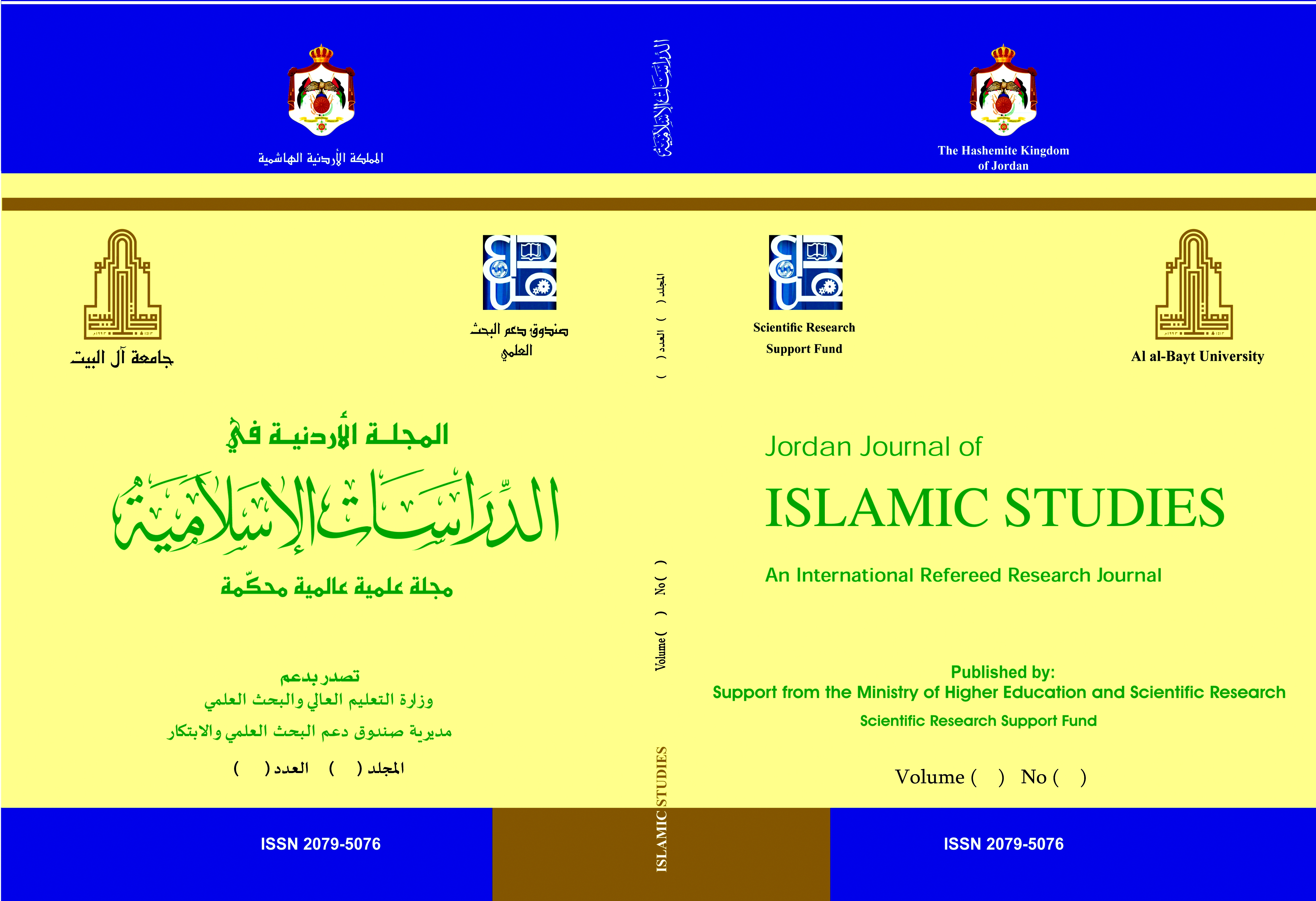Jordan Journal of Islamic Studies

Abstract
ملخص
بيّنت الدراسة المعنى اللغوي والاصطلاحي للنهي، والفساد، وأوضحت آراء علماء أصول المالكية في مسألة اقتضاء النهي الفساد، والتطبيقات الفقهية على هذه المسألة في البيوع عند المالكية، وتوصلت الدراسة إلى أن النهي يقتضي الفساد في العبادات، أما في المعاملات فيرجع إلى حال المنهي عنه، فإذا كان النهي لمعنى في المنهي عنه، أو لذاته، أو لوصفه يقتضي الفساد، وإذا كان لمعنى في غير المنهي عنه، فيختلف على أمرين: إذا كان النهي لحق الله يقتضي الفساد، وإذا كان لحق العبد فلا يقتضي الفساد، ويثبت البيع الفاسد عند المالكية شبهة الملك بأربعة أمور: تغيّر الأسواق، أو تغيّر العين أو هلاكها، أو تعلق حق الغير بها.
الكلمات المفتاحية: النهي، الفساد، البيع، المالكية.
The prohibition and requirement the corruption for the Malikis -applied study on sales-
Abstract
The study explained the linguistic and idiomatic meaning of prohibition and corruption and explained the views of Maliki scholars on the issue of requiring the prohibition of corruption, and the jurisprudential applications on this issue in sales, the study concluded that the prohibition requires corruption in worship, but in transactions it returns to the state of which it is prohibited. The prohibition was in the meaning in the prohibited, or for its own sake, or to describe it that requires corruption, and if it wasn’t in meaning of the prohibited, it differs on two matters: if the prohibition against the right of God requires corruption, and if it is to the right of a people it does not require corruption, and the corrupt sale is proven by the Malikis the suspicion of the Property in four things: the change of markets, the change of the Sold or destruction, or the suspension of the right of others to it.
Keywords: prohibition, corruption, sale, Malikis.
Recommended Citation
Gharaibeh, Enas Mohammed Hamad
(2022)
"النهي واقتضاؤه الفساد عند المالكية: - دراسة تطبيقية في البيوع- The prohibition and requirement the corruption for the Malikis -applied study on sales-,"
Jordan Journal of Islamic Studies: Vol. 18:
Iss.
3, Article 14.
Available at:
https://digitalcommons.aaru.edu.jo/jois/vol18/iss3/14

